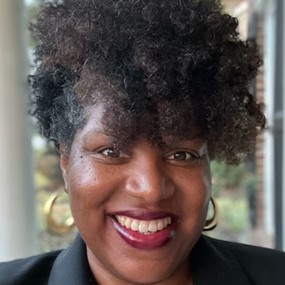Office Hours
Tuesday, Thursday 3:30-5:30 pm (email for an appointment)
Education
PhD, Rice University
MA, Rice University
MTS, Wesley Theological Seminary
MDiv, Wesley Theological Seminary
BA, Marymount University
About Me
Employing black literary studies as a primary (interdisciplinary) close-reading method, Dr. Hamsa’s scholarship is concerned with the ways in which U.S. American literatures—particularly black writers in the United States—engage the matter(s) of black sentience. This work is concerned with the ways that blackness precedes, and exceeds, its relationship to the category of the human. Dr. Hamsa’s in-progress manuscript, All We Have Is Flesh: On Blackness and the Performance of the Human, is a critical contribution to the expanding fields of black literary studies and black studies of the human. In conversation with theorists—and black artists/novelists as theorists—such as Hortense Spillers, Sylvia Wynter, R.A. Judy, Zakiyyah Iman Jackson, Jennifer Packer, Octavia E. Butler, Zora Neale Hurston, and others, All We Have is Flesh examines literary and visual texts across centuries, and it limns the ways in which these works illumine the insufficiency of black humanity as praxis. In so doing, All We Have is Flesh, in its interrogation of the complex aesthetics of black sentience, firmly contests the possibility of a productive relationship between blackness and the human.
Research Interests
19th & 20th Century American Literatures, Black Studies-Philosophies and Theories of the Human, Blackwomen’s Literature, Black Religion and/as Literature, Critical & Cultural Theory, Southern Studies
Publications
Review: Black Freethinkers: Review: Black Freethinkers: A History of African American Secularism (Christopher Cameron, 2019), May We Forever Stand: A History of the Black National Anthem (Imani Perry, 2018), and The New Negro: The Life of Alain Locke (Jeffrey C. Stewart, 2018). Journal of Urban History. November 2020, (1-6).
Courses Taught
Undergraduate Courses
African American Literature After 1900
The Uses of Theory: A Survey of Critical Theory
Reading the Black 80s
Cartographies of the Fantastic: Selected Works of Octavia Estelle Butler
Graduate Courses
Blackness and the Problem of the Human
